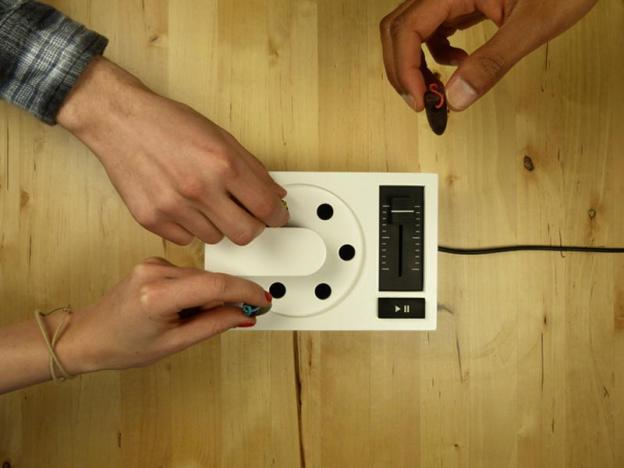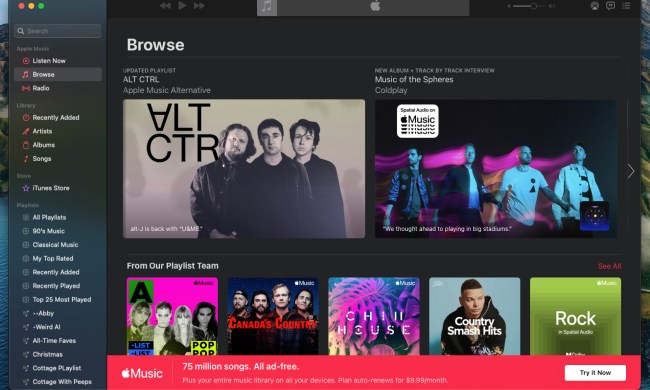 Spotify has been busy transforming its streaming music service into an app platform, loading up its catalog and luring developers. The site wants to fall in that elusive sweet spot combining social and music, which we still haven’t found. Meanwhile, Dundee University student Andrew Pairman has made a fair more tangible application that is probably the most literal approach at socializing music streaming.
Spotify has been busy transforming its streaming music service into an app platform, loading up its catalog and luring developers. The site wants to fall in that elusive sweet spot combining social and music, which we still haven’t found. Meanwhile, Dundee University student Andrew Pairman has made a fair more tangible application that is probably the most literal approach at socializing music streaming.

Tangibility is part of what Pairman wanted to inject into music with his project. We’ve offloaded our collections to iTunes and streaming services, relinquishing a lot of ownership. “Through research it became clear that the meaning and consideration involved in sharing music has decreased through time. Where we would spend hours making someone a mix-tape, personally mixing from various cassettes, we now spend minutes, even seconds, sending a link to YouTube or Spotify,” Pairman writes. “The aim of Social Jukebox is to bring back the physical aspect of music sharing and allow it to thrive in a social environment.”

